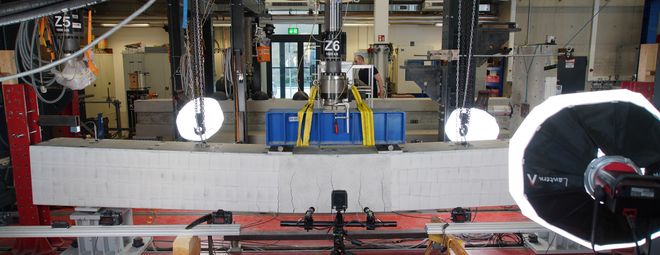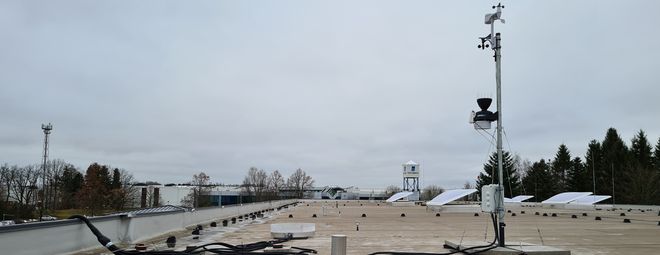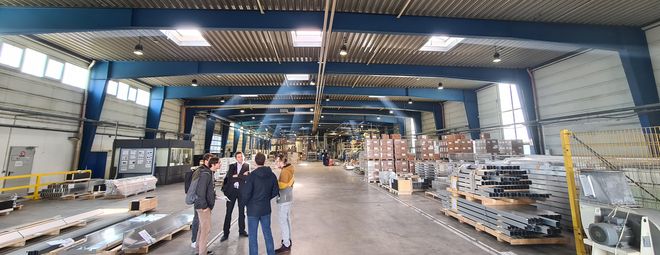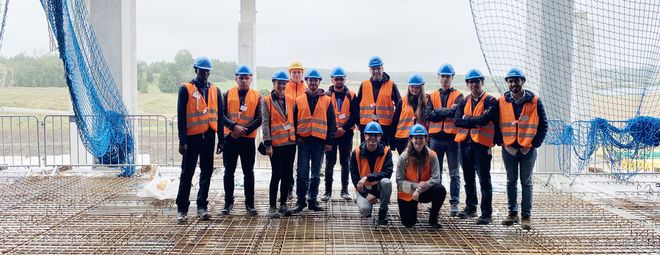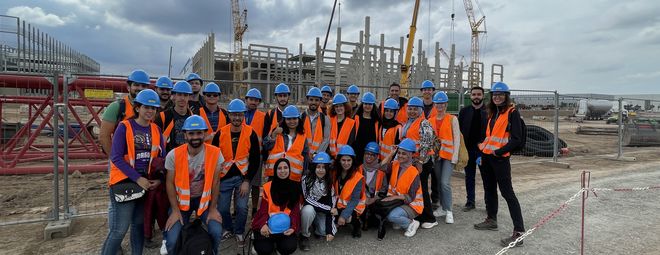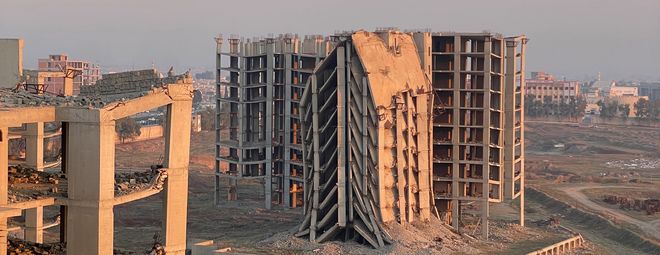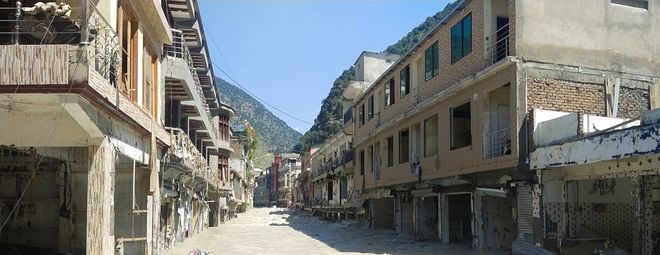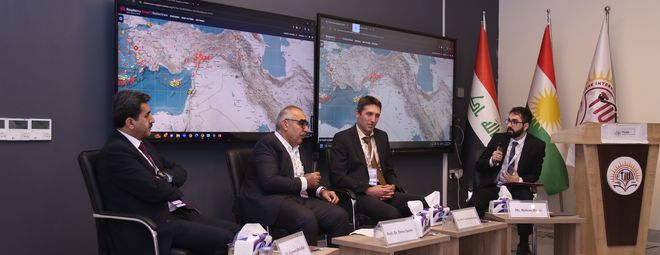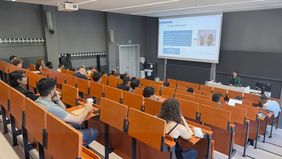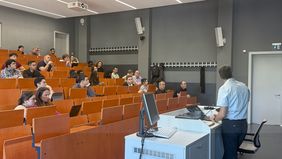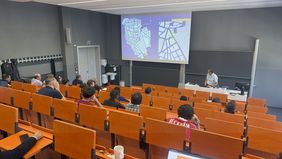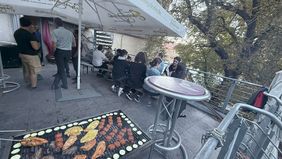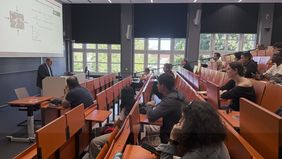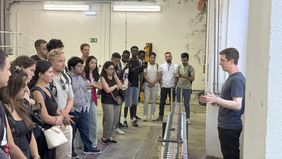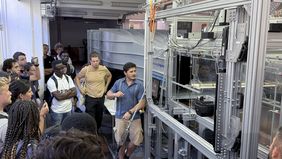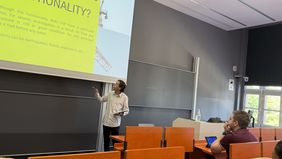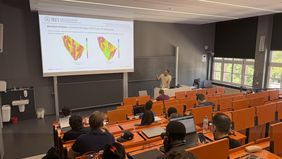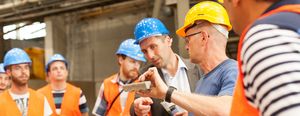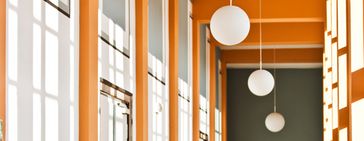Over the course of two intensive weeks, participants will tackle complex engineering challenges, explore innovative solutions for sustainability, and engage in interdisciplinary projects aligned with the UN Sustainable Development Goals (SDGs). The program combines specialized coursework with international expertise, hands-on team projects, and on-site excursions. Highlights of the five project tracks include:
- Project 1: Use of Polymer-Modified Concretes (PCC) for Innovative Refurbishment Solutions | Dr.-Ing. Alexander Flohr (Chair of Construction Chemistry and Polymer Materials) & Jun.-Prof. Luise Göbel (Chair of Mechanics of Engineering)
- Project 2: Performance-oriented façade design using LCA and BIM tools | Angela Mejorin, Ph.D., Mejorin A. Consulting & Eda Özaltay (BUW)
- Project 3: Seismic resilience in structural design: advanced methods and applications | Jun.-Prof. Lars Abrahamczyk (Chair of Advanced Structures) & Dr. Carlos Emiliano González Calva (UNAM, Mexico)
- Project 4: Computational and Experimental Wind Engineering for Long-span Bridges | Dr. Samir Chawdhury & Prof. Dr. Guido Morgenthal (Chair of Modelling and Simulation of Structures)
- Project 5: Innovation Challenge: Transformation through Sustainable Innovations | Jun.-Prof. Dr. Nikolaus Seitz (Chair of Entrepreneurship and Technology Transfer)
In addition, a series of guest lectures will introduce students and faculty to cutting-edge topics such as digital twins, circular construction, photogrammetry, and advanced earthquake engineering. Notable guest lectures include:
- Aug 19th, 09:00–10:30 | K. Edip (IZIIS): Advanced Simulation of Soil by Plaxis and ANSYS Software Using Non-linear Modelling
- Aug 20th, 09:00–10:30 | S. Usmanov (TTPU): Photogrammetry vs Lidar Data Integration for Full 3D Modeling of Buildings for Detailed Structural Analysis
- Aug 22nd, 09:00–12:30 | T. Lahmer & T. Most (BUW): Introduction to Optimization
- Aug 25th, 13:30–17:00 | N. Seitz (BUW): Transformation Through Sustainable Innovations
- Aug 26th, 09:00–10:30 | C.E. González C. (UNAM): Advanced Techniques for Generating Synthetic Ground Motions in Earthquake Engineering
- Aug 26th, 11:00–12:30 | C. Koch (BUW): Digital Twin
- Aug 27th, 09:00–10:30 | R. Zaharieva (UACG): Circularity in Construction
- Aug 27th, 11:00–12:30 | V. Rodehorst (BUW): Image-based Damage Detection for Structural Inspection
The program also features opportunities for exchange and collaboration, including the Participants Colloquium on 20th August and the Final Presentations & Open Atelier on 29th August, where results will be showcased to the university community.
With its focus on sustainability, global collaboration, and innovation, this year’s Bauhaus Summer School once again reinforces Bauhaus University Weimar’s role as a hub for forward-looking engineering education.

